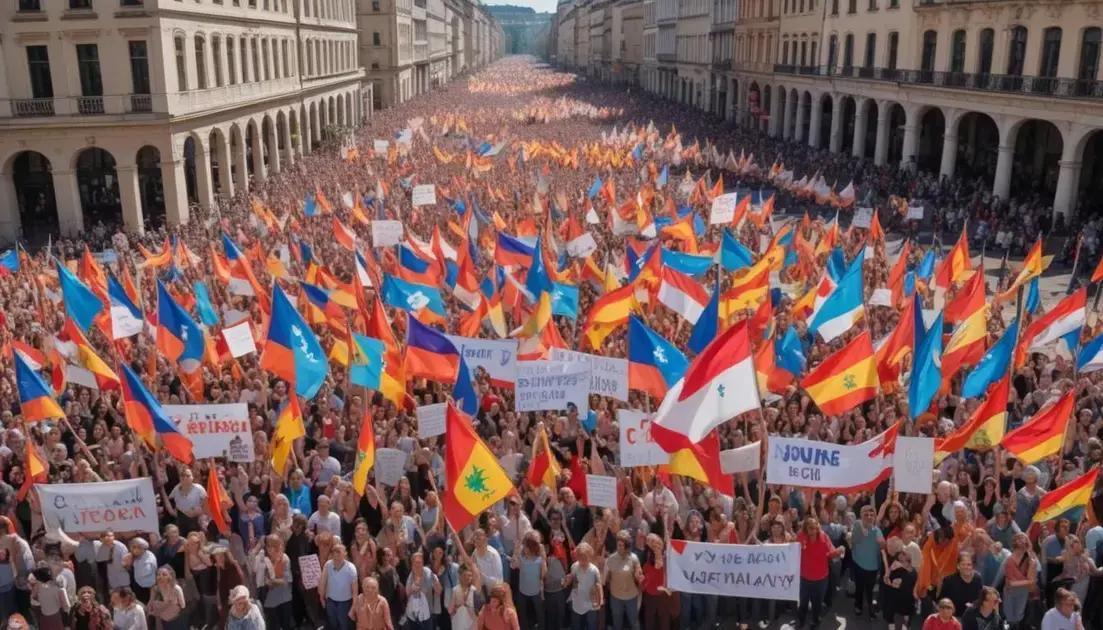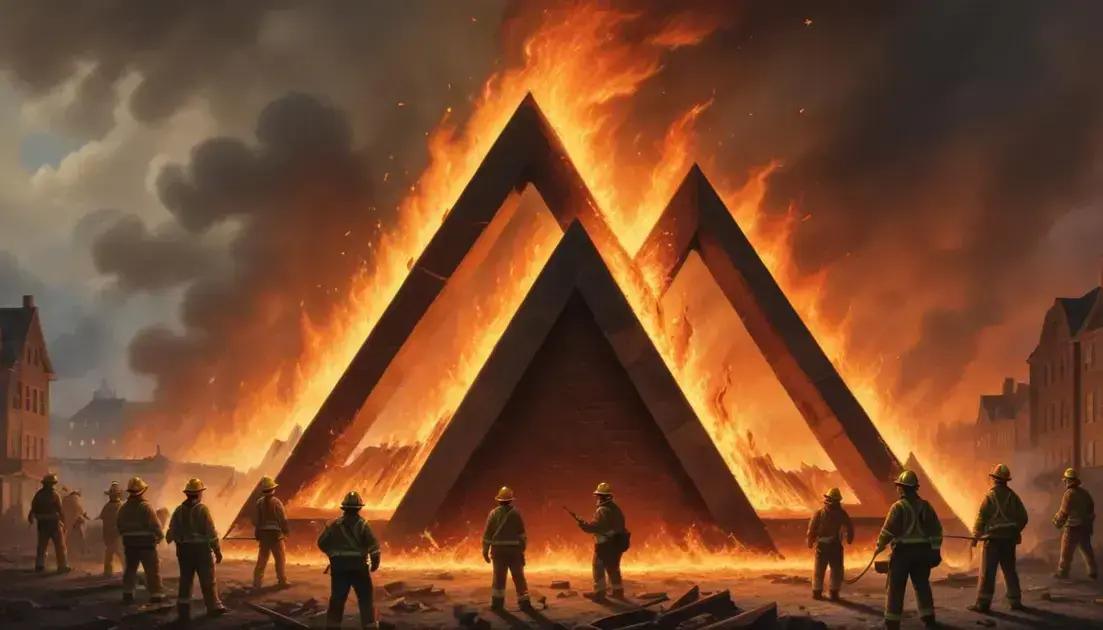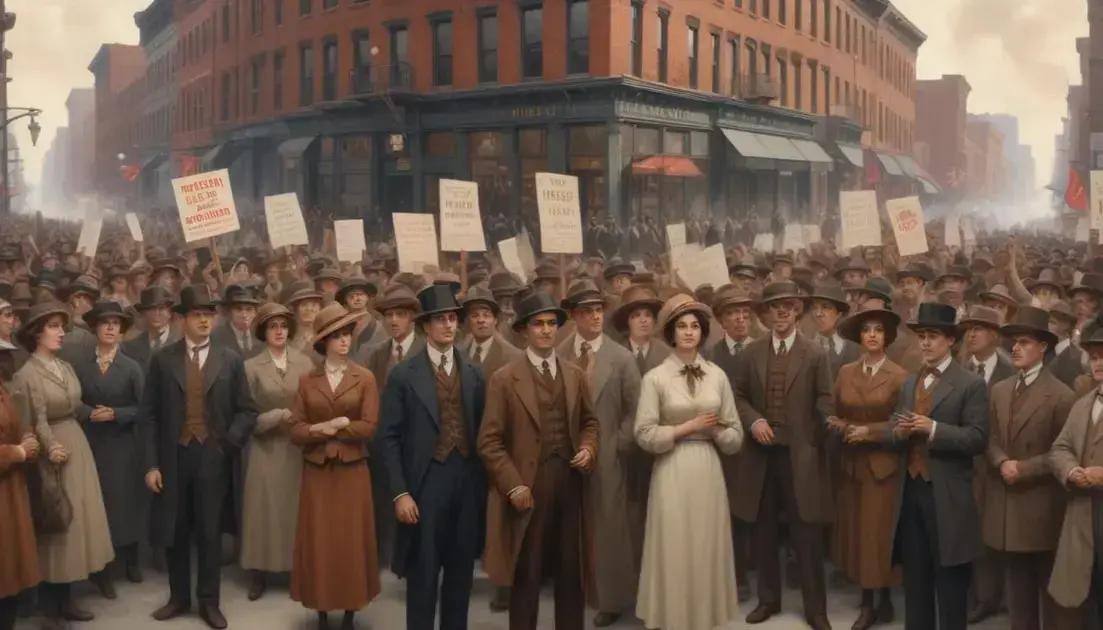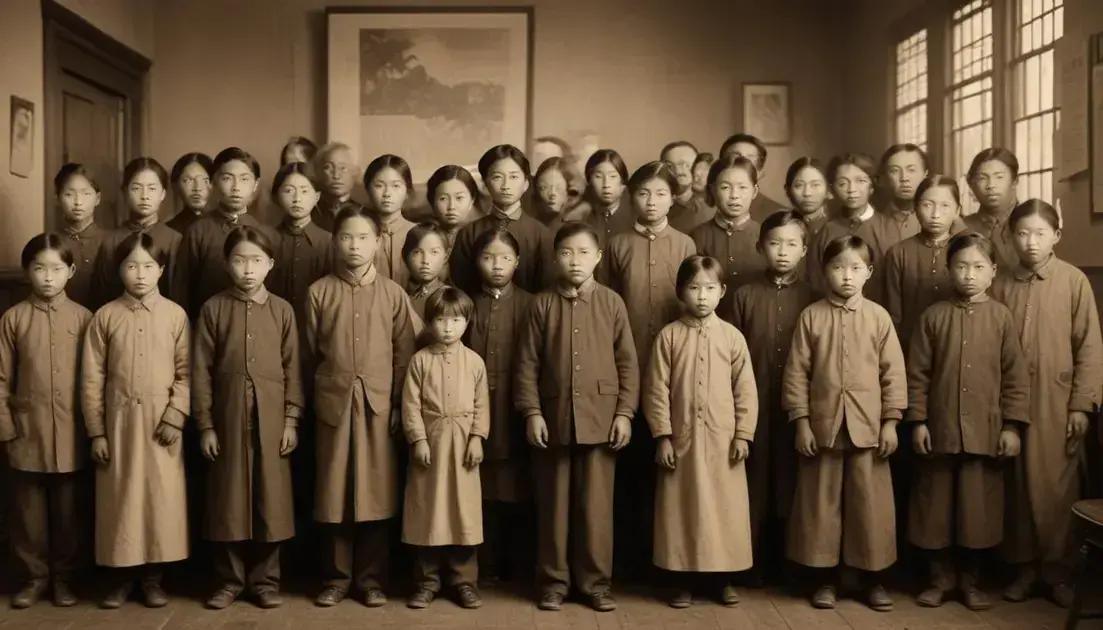
Diretas Já! The Largest Popular Movement for Brazil’s Redemocratization
The Diretas Já movement significantly impacted Brazil’s path to democracy by mobilizing millions for direct presidential elections during the 1980s. It united citizens and raised awareness about political rights, ultimately leading to the end of military rule. The movement also inspired new political parties and increased civic engagement, demonstrating the power of collective action. Its legacy continues to influence contemporary discussions about democracy and social justice in Brazil, reminding future generations of the importance of advocacy and unity in shaping governance.
Diretas Já was a monumental movement in Brazil that united millions for direct presidential elections. Have you ever wondered how a single call to action can ignite the masses? Let’s dive in!
Introduction to the Diretas Já movement
The Diretas Já movement was a significant chapter in Brazil’s history. It began in the early 1980s when people grew tired of the military dictatorship. Citizens wanted to reclaim their right to vote for their president. Direct elections felt like a must for a genuine democracy.
Why It Started
Many Brazilians were frustrated with the lack of democracy. The military regime had been in power since 1964, and political opposition was often silenced. The demand for direct elections became a unifying force for everyone wanting change.
Major Events
The movement saw massive rallies that drew millions into the streets. In cities like São Paulo and Rio de Janeiro, people waved flags and chanted slogans demanding direct elections. One famous event was on April 1, 1984, when a huge crowd gathered, marking a peak in the movement.
Who Was Involved
A wide range of people participated. Students, workers, and politicians all joined efforts to push for their rights. Celebrities and artists also supported the cause, spreading the message through their platforms.
The Impact
Although the constitutional amendment to allow direct elections failed, the movement was a turning point. It paved the way for the end of military rule and brought more attention to the need for democratic reforms. The voices of Brazilians could no longer be ignored.
Historical context of Brazil’s redemocratization
The journey of Brazil’s redemocratization is fascinating and complex. Following decades of military rule, the country faced many challenges. The dictatorship lasted from 1964 until the early 1980s, restricting freedoms and silencing voices.
Military Rule
During this period, many people lost their rights. Activists were jailed or exiled for speaking out. The government controlled the media and manipulated information to maintain power. This created a sense of fear among many ordinary citizens.
Cultural Shifts
As the years passed, people grew tired of the regime. Artists, musicians, and students began to express their desire for change. They used their talents to raise awareness and build support for democracy. This cultural push helped inspire a new generation.
International Influence
Globally, the tide was turning against dictatorships. Many countries in Latin America were also moving towards democracy. Brazil saw this as an opportunity. Citizens were motivated by these international examples and wanted the same for their homeland.
The Beginning of Change
By the late 1970s, political pressure grew for reforms. The military government slowly started to relax its grip. In 1985, Brazil finally held indirect elections, which marked a significant step towards democracy. Leaders emerged, calling for a more open and fair political process.
Major events and mobilizations
Throughout the Diretas Já movement, many significant events took place. These mobilizations united people from all walks of life. Each event helped to amplify the call for direct elections in Brazil.
Massive Protests
One of the biggest events occurred in April 1984. More than a million people filled the streets of São Paulo. They waved flags and shouted slogans for democracy. This moment was a powerful statement that people wanted change.
National Mobilization
Mobilizations were not limited to big cities. Smaller towns held their own rallies too. Citizens everywhere rallied for their right to vote. The message was clear: everyone deserved a voice in their government.
Notable Figures
Prominent figures joined the protests, adding credibility to the movement. Politicians, artists, and athletes spoke out for democracy. Their involvement drew even more attention to the cause and encouraged participation.
Media Coverage
The media played a crucial role in these events. Television stations broadcast protests live, bringing the excitement and urgency to homes across the nation. This coverage helped build momentum and encourage more citizens to join in.
Legacy of Mobilizations
The collective energy of these events was crucial in pushing for change. They served as a reminder that united voices can challenge even the strongest of regimes. The movement’s spirit continues to inspire democratic efforts today.
Impact of the movement on Brazilian politics
The Diretas Já movement had a huge impact on Brazilian politics. It helped to reshape the political landscape of the country. This movement showed that people could unite for change and reclaim their rights.
Awareness of Political Rights
Before the protests, many citizens felt powerless. The movement raised awareness about the importance of voting. It encouraged people to speak up and demand their rights, leading to more civic engagement.
End of Military Rule
One major outcome was the end of the military dictatorship. As pressure grew, the government had to respond. By 1985, Brazil held its first direct elections in over two decades, signaling a new era of democracy.
New Political Parties
The movement also led to the emergence of new political parties. These parties aimed to represent the voices that had been ignored. They addressed the needs of common citizens and promoted democratic values.
Legacy of Activism
The activism from Diretas Já continues to inspire today. Many Brazilians still fight for freedoms and rights. The movement laid the groundwork for future social and political movements in Brazil.
Continued Demand for Democracy
Even after its success, challenges remain. Citizens continue to demand transparency and integrity in politics. The spirit of Diretas Já lives on as a reminder of the power of collective action.
Conclusion: Legacy and lessons learned
The Diretas Já movement leaves a powerful legacy. Its impact on Brazil’s history is clear. Citizens learned the value of standing up for their rights.
Importance of Civic Engagement
One key lesson is the importance of being active in politics. When people voice their concerns, they can create change. Civic engagement encourages a healthy democracy.
The Power of Unity
Another lesson is that unity is strength. This movement showed that when people come together, they can challenge authority. Collective action makes a significant difference.
Persistent Advocacy
Advocacy doesn’t stop with one victory. The movement taught that ongoing efforts are needed for continued progress. Citizens must keep pushing for transparency and accountability from their leaders.
Inspiration for Future Movements
The spirit of Diretas Já continues to inspire many today. New movements draw on its lessons to fight for civil rights and freedoms. The journey toward democracy is ongoing.
Conclusion
In conclusion, the Diretas Já movement played a vital role in shaping Brazil’s democratic journey. It taught us that when people unite for a cause, real change is possible. Civic engagement is essential for a healthy democracy, and everyone has a voice that matters.
Furthermore, the movement’s legacy highlights the importance of continuing to advocate for rights and freedoms. By learning from history, we can inspire future generations to stand up for what is right. The principles of unity and persistence remain key in our ongoing fight for justice and equality.
Ultimately, the spirit of Diretas Já serves as a reminder that every person has the power to influence their country. Together, we can continue to build a brighter future for all.


